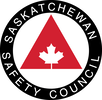In this course, you'll learn what risks may occur in your workplace during an emergency, how to respond to different emergencies, and the steps required to prepare for an emergency.

An emergency is defined as an unexpected, dangerous event. While you don’t know when an emergency situation will occur, you can predict what types of emergencies will affect your organization.
Being able to make quick decisions is vital and preparing for the worst possible outcome will allow you to keep control in difficult and unplanned situations.
This will keep employees safe and make sure that an emergency does not turn into a disaster.
Course Description:
In this course, you'll learn what risks may occur in your workplace during an emergency, how to respond to different emergencies, and the steps required to prepare for an emergency.
Topics Covered:
Hazard recognition
Preparing a plan
Training staff on emergency plan execution
Situational preparation including:
Fire
Flood
Weather
Bomb threats
Medical emergencies
Violence
Chemical
Legislation
The course will also address any hazards not listed in the manual that are specific to your organization.
Since 1955, the Saskatchewan Safety Council, a non-profit registered charity, has been dedicated to the prevention of injury in Saskatchewan at home, at play, and at work.
Funded through donations, membership contributions, sponsorship, and the distribution of safety programs and materials, the revenues generated by the Safety Council are invested within the province of Saskatchewan to further promote safety.
© 2025 coursetakers.com All Rights Reserved. Terms and Conditions of use | Privacy Policy